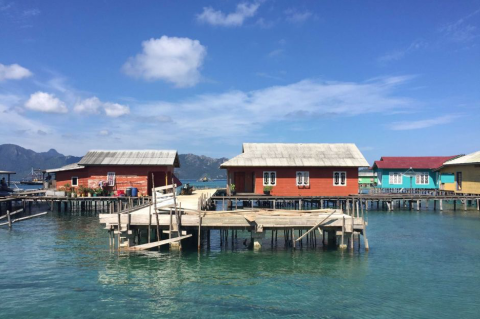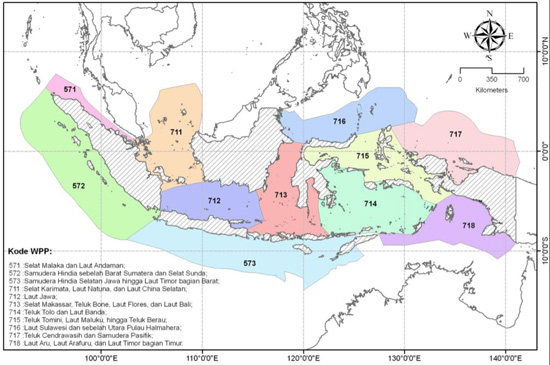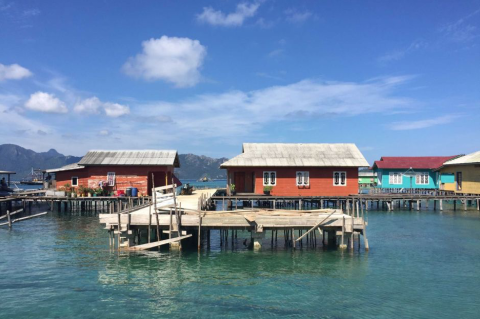
In 2010, Indonesia was divided into eleven Fisheries Management Areas (FMA) by the Ministry of Maritime Affairs and Fisheries (MMAF). The FMA were selected based on their fish resources and biophysical environments, and include capture fisheries, aquaculture, conservation, research, and fisheries development activities. FMA 711, which encompasses the Karimata Strait, Natuna Sea, and the South China Sea, is a strategic fishing ground in Indonesia, with an estimated fishery potential of 1.1 million tons/year, or 11% of the total catch for the country. Six provinces are part of this FMA: Riau, Bangka Belitung, South Sumatra, Jambi, Riau Islands, and West Kalimantan.

FMA map. Credit: MMAF.
CSF will conduct a one-week training for 30-35 FMA 711 stakeholders including:
- Development Planning Board and Fisheries Service
- Department members from all six provinces Regional
- Development Planning Agency (BAPPEDA)
- Regional Sea Defense Agency (BAKAMLA)
- Academics from leading universities
- Civil society organizations working in the field of fisheries and maritime affairs in the region
- Members of the local fishing associations
The training is intended to provide an understanding of economic fundamentals for policy makers in FMA 711 and other stakeholders involved in fisheries management in the region. This training will prepare policy makers and leaders with knowledge in the field of economics that will enable them to design better policy analysis, and to plan and implement effective fisheries policies.
We will present a combination of fisheries economics that has been contextualized for Indonesia, and particularly for FMA 711, and allow time for consultation with fisheries experts. Training materials will be delivered interactively, including games and a fisheries policy simulation. Participants will have the opportunity to think strategically about the economic and social trade-offs of a proposed policy. We invite participants to think about relevant, urgent cases in their area and bring a real policy problem or question to the classroom for discussion.
The scheduled topics for this 5-day training are as follows:
Day 1
- Challenges in sustainable fisheries management and marine conservation
- Policy and management roadmap for FMA
- Data based policy solutions
- Open access harvest simulation
- Fisheries economics
- Regulatory approaches to fisheries management
Day 2
- Sustainable fisheries management concepts
- Microeconomics & Macroeconomics
- Identifying challenges in FMA 711
Day 3
- Economics of Marine Protected Areas
- Introduction to input-output model
- Economic impact analysis
- Economic tools for decision making
- Sustainable financing
Day 4
- Economic valuation overview and methods
- Cost benefit analysis overview and exercise
- Introduction to trade-off analysis
Day 5
- Policy simulation workshop
- Scenario planning and next steps for policy making in FMA 711


